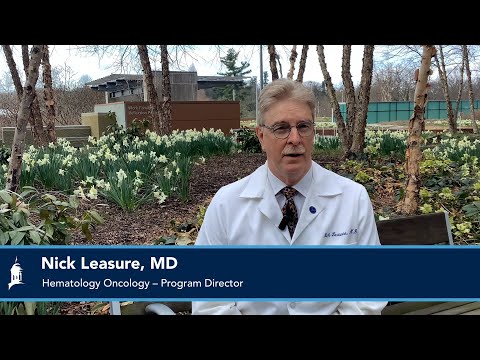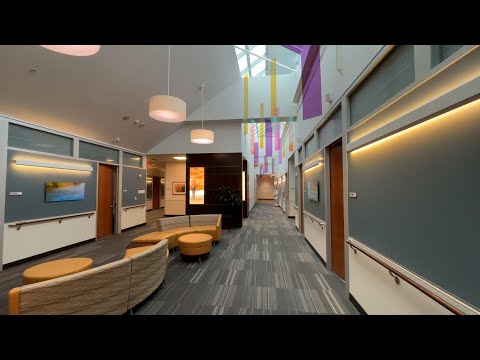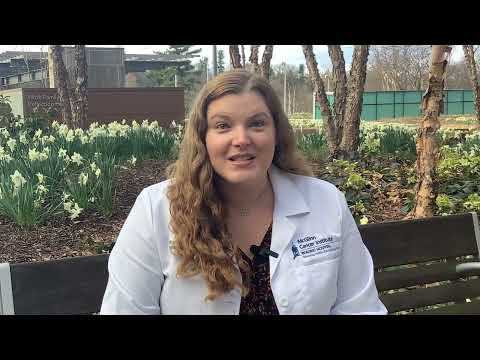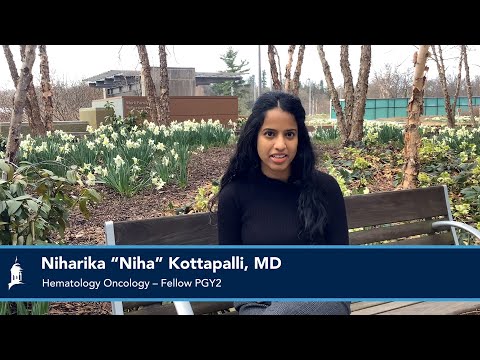The Tower Health Hematology Oncology Fellowship Program at Reading Hospital and McGlinn Cancer Institute - Reading Hospital is a three-year, ACGME-accredited fellowship program. The program goals are to provide training and evaluation in the care of oncology and hematology patients leading to board eligibility in both hematology and medical oncology. The program has a tradition of rigorous training with the goal of developing competent clinicians and clinical investigators. Currently, the program has two fellows per year, with a total of six fellows.
Leadership
Our Mission
The mission of the Tower Health Hematology Oncology Fellowship Program at Reading Hospital and McGlinn Cancer Institute - Reading Hospital is to provide fellows with a supervised training experience at the level required for the fellows to acquire competency as specialists in the combined fields of hematology and medical oncology.
It is the goal of the program that graduates obtain the professional, cognitive, and technical skills to provide competent, compassionate care. Fellows will have the opportunity to practice patient communication and shared decision-making and will learn to apply current evidence-based knowledge relevant to patient care. Clinical training is achieved through a balance of clinical experience, self-directed learning, didactic sessions, and active mentoring. Fellows will have ample time and be encouraged to be involved in research activities.
Program Description
The fellowship program aims to provide fellows with comprehensive subspecialty training in both hematology and clinical oncology. Those goals are achieved through direct clinical experience in inpatient and outpatient settings and a structured interactive didactic curriculum. Additional activities include a bone marrow clinic, board review sessions, bone marrow and peripheral smear pathology reviews, and additional training in both laboratory and transfusion medicine. Generally, there are a minimum of two didactic sessions per week.
Mentors are assigned to each first-year fellow, but because of the small size of the program, many fellows have more than one mentor or change mentors throughout training based on their evolving areas of interest.
In the first year, fellows are signed up for both inpatient and outpatient clinical rotations with approximately 40 percent of the time being spent on inpatient rotations.
The inpatient rotations at Tower Health involve the management of both primary care patients and a consultation service. The inpatient team is comprised of an attending physician, fellows, nurse practitioners and physician assistants, oncology nurses as well as medical residents and students. Fellows are responsible for teaching medical students and residents.
During the first year, fellows also have two inpatient rotations at Thomas Jefferson Hospital in Philadelphia. One rotation on the stem cell transplant service and one on the acute leukemia service. Housing is provided during these rotations.
Second-year fellows spend one third of the year on inpatient rotation at Reading Hospital and assume an increasingly independent role in managing the inpatient primary consultation service.
The remainder of the first two years is spent in mentored outpatient clinics. That clinic time is spent with faculty who practice general oncology and hematology, as well as time with faculty participating in disease-specific clinics and training. There are more than twenty multi-disciplinary oncology conferences and clinics weekly and fellows are encouraged to actively participate. While rotating on outpatient blocks, fellows are protected from inpatient responsibilities.
Fellows also have a continuity outpatient clinic assigned each year with the intent to maximize longitudinal experiences with teaching faculty.
Academic
Reading has a vibrant academic environment. There are several renowned local undergraduate universities as well as the Reading Hospital School of Health Sciences and their nursing program affiliated with the hospital. The campus of Drexel University College of Medicine at Tower Health is within walking distance. Tower Health has residency programs in most medical and surgical specialties. In addition to medical oncology, there are medical subspecialty fellowships in Cardiology, Gastroenterology, Infectious Diseases, Nephrology and Pulmonary, and Critical Care Medicine. There is an active GME department in the health system.
Research
There is an active and well-staffed research department at Tower Health and the Hematology Oncology research department is located at McGlinn Cancer Center - Reading Hospital. Participation in clinical research is encouraged and time has been set aside during the first two years for research. A large portion of the third year has been allotted for involvement and completion of research projects. Fellows regularly present at regional meetings and submission of abstracts and participation in national meetings is encouraged.
Faculty
There is close collaboration and interaction with the Hematology Oncology faculty including clinics and conferences, mentoring, and research opportunities. The faculty come from a wide range of backgrounds and experiences with fellowship training at Penn State, Jefferson, Drexel/Hahnemann, Fox Chase/Temple, University of Arizona, and the University of Maryland. Although all the physicians are board-certified and practice general Hematology and Medical Oncology, many have subspecialty interests and have large practices in the Hematology and Oncology subspecialties.
Sponsoring Institution
Tower Health
Tower Health is comprised of several hospitals, physician practices, and outpatient clinics in southeastern Pennsylvania. Reading Hospital is the acute care flagship hospital and primary and tertiary care center for the Tower Health network. The primary outpatient clinical site is the 50,000-square-foot McGlinn Cancer Institute - Reading Hospital. A 40-bed infusion center, GYN Oncology Department, radiation oncology, oncology social work, clinical trials department, risk assessment/genetics department, and palliative care department are located at the Cancer Institute.
At Reading Hospital and McGlinn Cancer Institute - Reading Hospital, there is exposure to a wide range of hematologic and oncologic diseases. The Reading Hospital oncology program sees more than 1,500 new cancer diagnoses per year and over one thousand referrals for benign and hematologic malignancy cases. There is a mixture of socioeconomic and ethnic groups cared for at the hospital and clinic. The case mix includes both primary care cases as well as tertiary referrals. This referral pattern provides exposure to unusual and rare cases as well as more common diagnoses that might normally not be referred to a tertiary care setting. The majority of new case referrals are seen in multidisciplinary clinics including breast, lung, gynecology, GU, and GI malignancies. There is an active clinical research program that enrolls more than one hundred patients/year in clinical trials and registries.
Life in Reading
Reading is the county seat of Berks County in southeastern Pennsylvania. The city population is just under 100,000 and the medical community services Berks County with a population of over 400,000. There are diverse ethnic groups represented in Berks County. The area has affordable housing as well as several public schools rated in the top fifty in the state. Socially, there are many outdoor activities and nearby suburban areas for dining and shopping. Reading is centrally located and is less than one hour from Philadelphia. New York, Baltimore, and Washington, D.C. are all within short driving distance.









